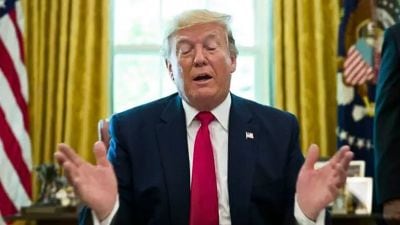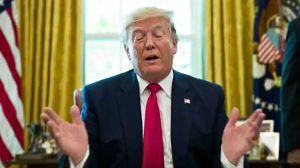Maturity begins at home
Is India’s foreign policy being managed brilliantly, or poorly? You can also pose that question differently. How well is India’s l...

Is India’s foreign policy being managed brilliantly, or poorly? You can also pose that question differently. How well is India’s leadership looking after her interests and position in a world that has changed faster than you would have imagined even after the end of the cold war?
The truth is, if India has been able to improve its relations with each member of the P5, as also with the rest of Europe and Japan in this period, we must have done something not just right, but quite brilliant. None of the other big, or even medium powers, can make that claim. The Americans have got their relationships in Europe shot, particularly with France. The Chinese have their tensions with the US and so do the Russians. The British are squabbling with much of the rest of Europe and the French are taking on a lot of the world in the belief that they are finally being acknowledged as the second superpower.
In this madness, India has eased itself into the global anti-terror coalition, nobody is even indulging in the pretense of putting a qualification on the grounds of the Kashmir dispute. The US indictment on Dawood Ibrahim is so clear and scathing it could as well have been drafted by Venkaiah Naidu. India’s oldest border dispute — with China — now seems to be moving into a phase of gradual settlement. It has managed to quite cleverly disguise support of the American cause in Iraq. Relationships in the Gulf have been managed deftly whereby a new intimacy with Israel is also not causing any particular tensions.
On top of all this, Vajpayee’s stature has been rising internationally. He has conceded nothing, except the privilege to those 65 years and older to cross the Wagah border on their feet and he has acquired respect that no Indian leader has had since Indira Gandhi.
How has this come about? Who is the architect of this fairly visionary success story? But, is this the whole story?
Let me pose another question: If we have handled our international relations so brilliantly well, are we feeling that much more secure and settled in this new world?
The answer, unfortunately, cannot be an unqualified yes. In spite of our significant foreign policy successes, our remarkable display of pragmatism in exploiting the emerging new equations, our internal discourse is still caught in up in one word: terrorism. This is the buzzword with the entire ruling establishment — even the minister of state for civil aviation dismissed the increased costs imposed on his airlines because of the ban on overflights over Pakistan as a “small price to pay for fighting terrorism.” You can’t blame him. Both our political and foreign policy establishments are so overwhelmed by the mantra of cross-border terrorism that neither they, nor the popular mind in general, is able to savour what should have been a feeling of stability and security unprecedented in our independent history.
It could be partly because of the way the issue of terrorism has come to dominate our internal political discourse. But could it be partly also because much of our establishment, including the foreign policy establishment, has failed to move in step with the change that has come about at this larger level?
For example, at a time when India is doing so brilliantly well on the global stage, why should its seniormost diplomats be delivering speeches accusing all of its neighbours — except Maldives, mercifully — of actively fomenting terrorism across its borders? Is it because the favourable winds have passed quietly over the bureaucracy’s heads? Or, is it also getting carried away by the domestic political discourse?
Ambassador Robert Blackwill had a favourite explanation whenever the issue of a bureaucracy not fetching up with changing policy came up. He has always taught in his lectures at Kennedy School, he said, that foreign policy establishments are never brought up or trained to change anything. They are, on the other hand, trained to apply to today’s problems solutions used yesterday and to expect that these would work tomorrow as well. In the US context, he quoted to his students the example of the problems the political leadership had getting the bureaucracy to start looking at the Soviet Union as a likely partner than the evil empire. Civil service establishments, he used to say, are like the emergency ward of a hospital. They are trained to follow standard operating procedures. The specialists can come the following day and figure out what else needs to be done. The specialists in this case are the political leadership.
It is easy and convenient, therefore, to blame the bureaucracy but should you not instead ask if the “specialists” have been firm and clear enough in sending the message down the line? When the prime minister made his grand gesture in Srinagar in April, he is unlikely to have wanted a graduated, step-by-step follow-up that did not go beyond the resumption of one bus service. Similarly now, the new flurry of CBMs is in danger of getting trapped in the same bilateralist, step-by-step nonsense.
Coming just when the snows begin to clog the passes and two months before the SAARC summit in Islamabad, this is a masterly move. The prime minister and his advisors see an opportunity to set the pace which Pakistan may either struggle to follow and if it does it would work greatly to our benefit. Combined with the offer of talks with a confused Hurriyat, this is not merely a move to score a minor debating point but to launch an ambitious new process which can at least build on the changing mood in Kashmir. You cannot let it be consumed by the usual bureaucratic tu-tu-main-main across the diplomatic divide over something as inconsequential as the issue of overflights and on cheap one-upmanship over how many of the other side’s poor and sick children you are willing to treat for free and, further, which country of the two has better medical care, and so on.
This is obscene when both countries top the chart of infamy internationally in terms of their overall standards of healthcare. Next, the two establishments would start offering free food to each other’s beggars, pavement dwellers, destitute widows and so on. This is the beginning of a new medievalism that spokesmen on the two sides would revel in, now also when this is the one chance of television stardom. It is time therefore for the prime minister and his policymakers to stop this forthwith and move ahead with what they can do to further their larger objective and what will make a real difference on the ground.
If the idea behind all this is a big one, then the better way could be to merely end the near-boycott of the two respective high commissioners. What was the point of raising our diplomatic contact to that level if we were to then blackball the poor man the moment he had presented his credentials? Exactly the same treatment is being meted out to our High Commissioner in Pakistan and if the prime minister’s intention is to break the ice and force the Pakistanis to reciprocate, all he has to do is smile at poor Aziz Khan possibly at a forthcoming iftar — as Mao had smiled at Brajesh Mishra long ago at an equally frosty period in Sino-Indian relations — followed by a call from the foreign office to let him get on with the business of formal calls on Indian leaders. We should at least lift the restraints on the Pakistani envoy travelling out of the “municipal limits of Delhi.” Because if that was the intention, why did we let the fellow come back in the first place, wouldn’t we have been better off with him in Islamabad’s municipal limits? We should then wait and see if the Pakistanis reciprocate or have Riaz Khokhar address another hour-long press conference and smugly insist that the Indian envoy is welcome to meet anybody as long as he carries UN documents or something. If we wish to set the pace and the agenda, this may just work. But it will be less fun in a televised press conference.
E-mail the Author
Photos




- 01
- 02
- 03
- 04
- 05



























